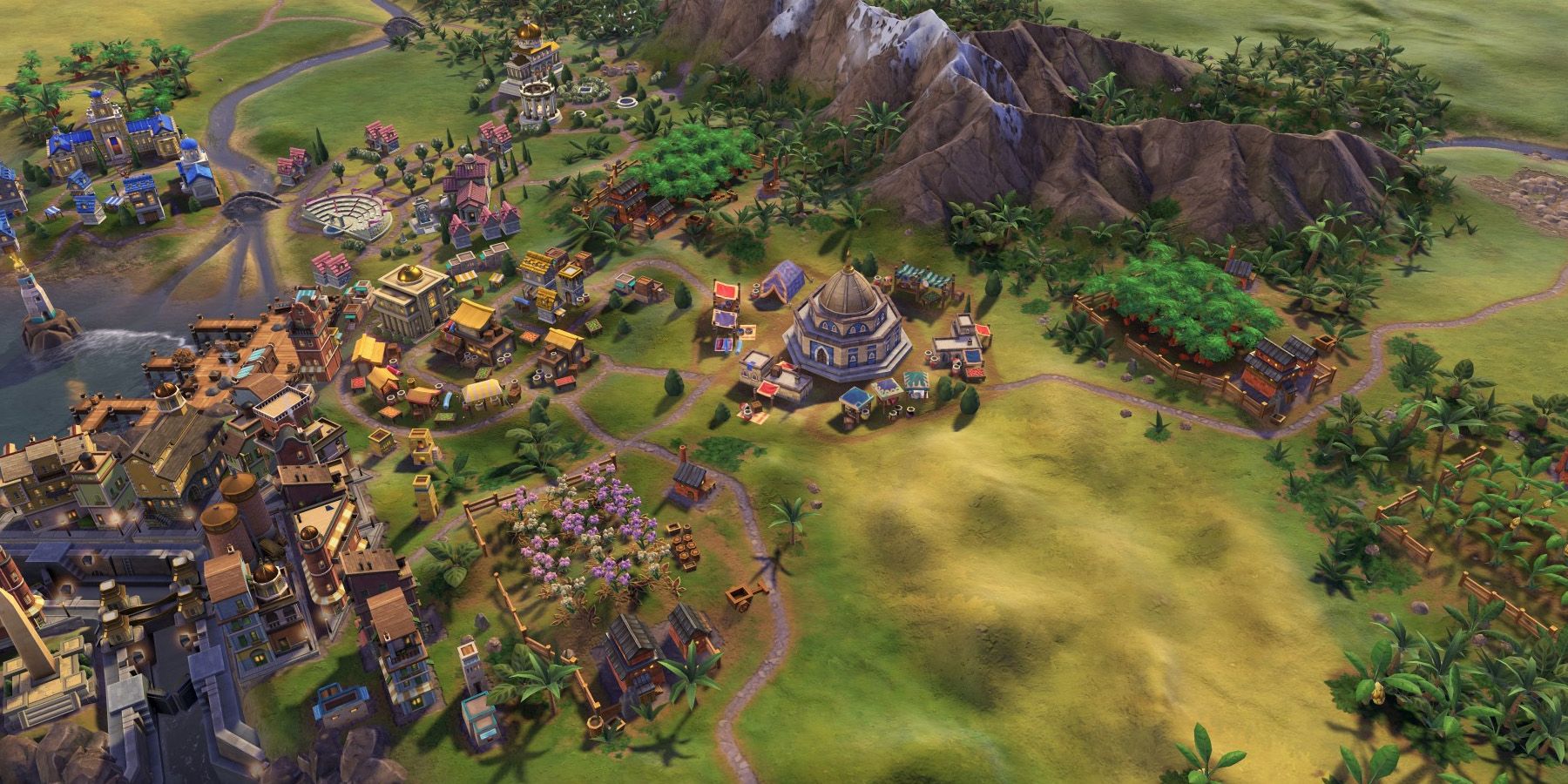Introduction to Civilization Series
The Civilization series has captivated players for decades, evolving through numerous iterations and expansions. From its humble beginnings in 1991, the franchise has introduced innovations that have reshaped the strategy gaming landscape. Each title offers unique mechanics and civilizations, contributing to its enduring popularity. Players often have their preferences, gravitating towards specific versions for their gameplay depth and modding potential. This exploration focuses on the experiences with Civilization IV, Civilization V, and their expansions, delving into what makes each title a significant part of gaming history.

The Appeal of Civilization IV: Beyond the Basics
Civ IV, particularly with its Beyond the Sword expansion, is frequently hailed as the pinnacle of the series. It offers deep cultural mechanics and strategic city placement challenges that keep players engaged for hours. The game’s emphasis on thoughtful military tactics allows for combined arms strategies, enhancing overall gameplay. Players often reminisce about epic battles and the satisfaction derived from executing complex plans successfully.
The robust modding community surrounding Civ IV extends its longevity, providing countless custom scenarios and enhancements. Mods enrich the gaming experience, enabling players to explore new civilizations and gameplay mechanics. Titles like Fall From Heaven and Rhye’s and Fall of Civilization showcase the creativity within this community. The depth and richness of Civ IV create a compelling narrative that captivates both new and veteran players, ensuring its place in gaming discussions long after its release.
Transition to Civilization V: Innovations and Challenges
The transition from Civ IV to Civ V marked a significant shift in gameplay dynamics, notably with the introduction of hexagonal tiles and the elimination of unit stacking. While many players welcomed these innovations for their fresh approach, others felt that they simplified the strategic depth that characterized its predecessor. This shift towards individual unit management created new layers of strategy, as players had to consider positioning and movement in ways they hadn’t before.
Despite its visual improvements and streamlined interface, Civ V faced criticism regarding its depth. Many traditional players believed that the changes detracted from the complexity that made Civ IV so engaging. The community remains divided on whether these innovations enhanced the overall experience. Discussions about the balance between accessibility for new players and maintaining depth for veterans are ongoing, illustrating the passionate opinions that the Civilization series evokes among its fanbase.
The Role of DLCs and Expansions
Expansions and DLCs have significantly shaped player experiences across both Civ IV and Civ V. For Civ IV, expansions like Warlords and Beyond the Sword added new cultures, mechanics, and scenarios that enriched the gameplay. These additions not only diversified player strategies but also deepened the overall narrative, allowing for more personalized storytelling within the game.
In contrast, Civ V’s expansions, such as Gods and Kings and Brave New World, aimed to refine existing systems rather than introduce entirely new concepts. While these expansions offered new civilizations and gameplay features, they often sparked debates about balance and complexity. Players frequently expressed hope that new content would address previous shortcomings without sacrificing the core gameplay elements that define the series. The impact of these expansions is crucial to the ongoing conversation within the Civilization community, highlighting the importance of player feedback in shaping future content.
The modding community has always been vibrant, particularly for Civ III and Civ IV, allowing players to create transformative experiences that often feel like entirely new games. Mods such as Fall From Heaven and Rhye’s and Fall of Civilization exemplify the creativity within the community, extending the life of the games and providing players with fresh content to explore. These modifications can introduce new mechanics, civilizations, and even alternate historical scenarios, enhancing replayability.
In contrast, Civ V and Civ VI are often perceived as less modifiable, which may limit the creativity of enthusiasts. This shift has led to discussions about the importance of modding capabilities in maintaining player engagement. As developers continue to release new titles, the dialogue regarding modding remains crucial, with players advocating for greater flexibility and tools to create unique experiences. The modding community not only fosters creativity but also serves as a lifeline for players seeking to enhance their gaming experiences beyond the original offerings.
Player Strategies: From Military Might to Cultural Diplomacy
Players develop unique strategies based on their chosen civilization and the game’s mechanics, which vary significantly between titles. In Civ IV, many enjoyed the intricate balance between military and cultural strategies, allowing for diverse gameplay experiences. The game’s depth encouraged players to explore various paths to victory, whether through conquest, diplomacy, or cultural domination.
With Civ V, the focus shifted toward diplomacy and individual unit tactics. The removal of unit stacking meant that players had to think more critically about positioning and movement, changing how they approached conflict. This evolution in strategy not only enriched gameplay but also fostered a deeper understanding of the game’s mechanics and the importance of adapting to opponents. The variety of strategies enhances player engagement across all iterations, creating a dynamic environment where no two games are ever the same.
Personal Experiences: Memorable Campaigns and Challenges
Many players have incredible stories from their time with the Civilization series, including epic campaigns and unexpected challenges. Whether battling formidable AI opponents or engaging in diplomatic maneuvers, these experiences shape individual player identities within the community. Specific narratives often highlight the unpredictability of gameplay, leading to unforgettable moments that resonate long after the game ends.
Sharing these stories fosters a sense of camaraderie among fans, connecting them through their shared experiences. Players often recount tales of hard-fought victories, devastating defeats, and the thrill of achieving a long-sought-after goal. These personal narratives not only enrich the gaming community but also serve as a testament to the impact of the Civilization series on players’ lives, creating lasting memories that transcend the screen.
Future of Civilization: Expectations and Speculations
As the Civilization series continues to evolve, players eagerly anticipate how future installments will address past criticisms. The balance between innovation and tradition remains a key topic among fans. Expectations for new features, civilizations, and gameplay mechanics are high, with players speculating on how the next iteration will improve upon its predecessors.
Community feedback is crucial, as developers often draw insights from player experiences to shape future content. Discussions about desired features, such as enhanced modding capabilities or deeper diplomatic systems, highlight the ongoing engagement of the player base. The excitement for what’s to come keeps the conversation alive, ensuring that the Civilization series remains a significant part of the strategy gaming landscape. As players share their hopes and dreams for the future, the legacy of Civilization continues to grow, fueled by the passion of its community.
Conclusion: Celebrating the Legacy of Civilization
The Civilization series has left an indelible mark on the gaming landscape, fostering deep strategic thinking and creativity. Fans continue to celebrate its legacy, reflecting on their experiences across various titles. Whether one prefers the complexity of Civ IV or the streamlined nature of Civ V, there is a shared appreciation for the series’ impact on gaming history.
As the community grows and evolves, the love for Civilization remains a unifying force among players. The franchise’s ability to adapt while maintaining its core principles ensures its relevance in an ever-changing industry. The stories, strategies, and experiences shared by players contribute to a rich tapestry that highlights the enduring legacy of the Civilization series, making it a beloved part of the gaming world.
Armando Maynez
Engineer, industry executive, research enthusiast. Avid learner with diverse interests in coding, machine learning, artificial intelligence and reinforcement learning. 17+ years of experience working in multinational corporations.



Comments